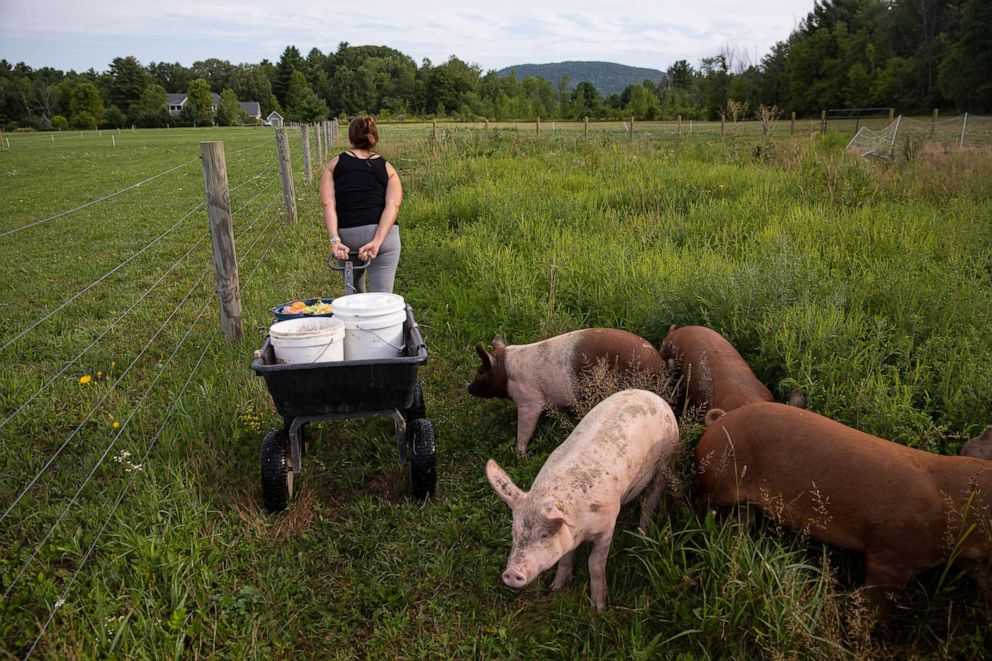New threat of government shutdown looms as talks fail to produce deal
House Democrats to vote on their own proposal as election-year divisions emerge.
With just nine days remaining until current funding runs out, Congress on Monday moved a step closer to triggering another government shutdown after failing to strike a bipartisan deal on a stopgap funding bill to keep the government open.
After lengthy negotiations did not produce a bipartisan agreement with Republicans, House Democrats introduced their own proposal Monday afternoon funding government until Dec. 11, moving "full steam ahead" on a vote Tuesday, according to a senior Democratic aide.
The House will then send the political hot potato to the GOP-controlled Senate, although both chambers must ultimately pass identical legislation, which the president must also sign, in order to avert a government shutdown on Oct. 1.
Recognizing the lack of an agreement, a senior House Democratic aide warned that the bill "may get stuck in the Senate" after House passage, creating an impasse leading up to the deadline at the end of the month.
House Speaker Nancy Pelosi and Treasury Secretary Steven Mnuchin struck an informal agreement early this month on a “clean” continuing resolution – essentially agreeing to keep a stalemate over another phase of COVID-19 relief out of the negotiations in order to keep government open.
Bipartisan, bicameral appropriators negotiated for weeks to agree to a series of anomalies – essentially short-term tweaks to current funding levels that address short-term need.
Two crucial points of contention remain: farm aid for the Commodity Credit Corporation -- a GOP priority -- and funding to replenish Pandemic Electronic Benefit Transfer, a temporary food benefit for families with children who would have received free or subsidized meals if schools were open.
Another senior House Democratic aide contended that the CCC money “wasn’t help for farmers” but was “a bottomless, unaccountable political slush fund.”
“House Democrats already passed more than $30 billion in targeted and tailored emergency aid to farm country in response to the pandemic as part of the Heroes Act, including language to ensure greater transparency and accountability with the Administration’s use of the Commodity Credit Corporation, including decreasing the Secretary's ability to spend billions of taxpayer dollars without telling Congress,” the aide added.
The Heroes Act, a $3.4 trillion coronavirus relief bill, passed the House on May 15 but has failed to advance in the Senate.
Democratic leadership contends Trump is" openly using taxpayer dollars" in the CCC fund "explicitly political purposes," such as bailing out the oil industry, but a bipartisan delegation of lawmakers from Iowa encouraged Pelosi and Senate Majority Leader Mitch McConnell to come together on the farm aid.
“In Iowa, our farmers have not only suffered lost markets and disrupted supply chains from the COVID-19 pandemic, but they have also been dealing with drought conditions and the destruction caused by the recent derecho which destroyed thousands of acres of crops and farmland," wrote Sen. Joni Ernst, chairman of the Senate Agriculture Subcommittee on Rural Development and Energy, along with Iowa Republicans Sen. Chuck Grassley, Rep. Steve King, and Democratic Reps. Cindy Axne, Abby Finkenauer and Dave Loebsack. "On top of all of this, farmers are planning to receive farm payments this fall and these resources cannot be taken away when they need it the most. Not providing additional funds to the CCC will delay their payments.”

"With schools across the country still closed because of restrictions associated with the pandemic, we can’t allow these vulnerable children to fall through the cracks," a senior House Republican aide argued in favor of extending the Pandemic Electronic Benefit Transfer. "It is essential that we extend this temporary program through the end of the year, and meet our responsibility to feed children in need."
Pelosi emphasized that the Democratic continuing resolution released Monday would keep government open for now, but acknowledged that the broader goal is to create additional time to negotiate “bipartisan legislation to fund the government for this fiscal year.”
“We continue to believe that the Congress should complete its work by passing full appropriations bills by December, which the House has already done,” Pelosi, D-Calif., stated, adding that lawmakers must continue working towards an agreement for another phase of coronavirus relief package “that meets the health and economic needs of the American people.”




